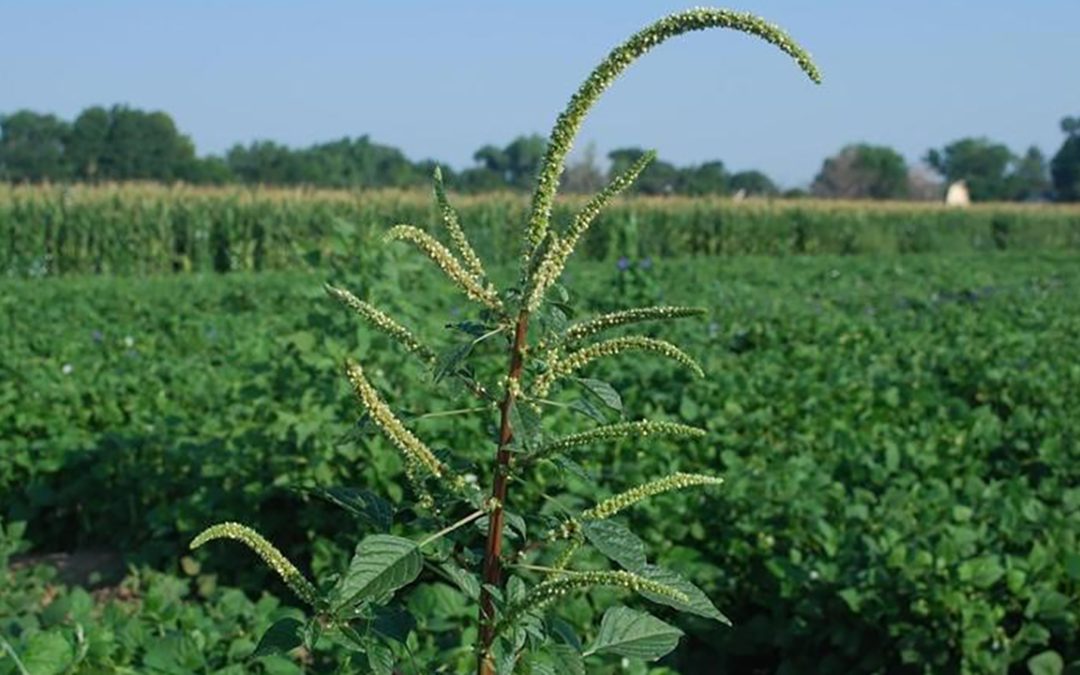by JAMIE CREAMER
What began in 2006 as a small-scale study to determine whether medicinal herbs had potential as a profitable alternative crop for Alabama growers is now a 4,200-square-foot garden boasting more than 60 species and varieties of plants that humans throughout history have turned to for healing.
It is the Auburn University Medicinal Plant Collection, and when the research-funding coffers ran dry three years ago, study leader and professor Dennis Shannon in the Department of Crop, Soil and Environmental Sciences believed in the project, and the product itself, so strongly that he repurposed the verdant planting as an on-campus teaching-and-demonstration garden not only for Auburn students, faculty and staff, but for the community as well. It’s an idea that’s taking hold.
“In the past two years, the plot has truly evolved into an educational garden,” Shannon says.
Located between Woodfield and Lem Morrison drives in the Auburn agronomy farm’s Crops Garden, the collection that Shannon originally established with a half dozen plant species is a bit off the beaten path, but that isn’t stopping a growing number of folks from finding their way to it. That’s especially true on the days when garden curator Tia Gonzales hosts her entertaining, third-Thursday guided tours and herbal-medicine crash courses.
Gonzales is a local gardening guru whom Shannon brought on board to manage the garden early on in his research project, and for good reason: The woman knows medicinal herbs like the back of her hand, from the how-tos of successfully growing and effectively using them to trivia and folklore. And when she leads a group through the garden, that free-flowing knowledge is captivating.
Apparently, word is spreading. Gonzales was delighted if she had a couple or three visitors per tour when she started offering them in 2013, but for the 2015 season’s inaugural tour April 23, some 41 people showed up.
“The crowd was huge,” Gonzales says. “Almost too many for the space and for my voice, and enough to make us think we’ll offer two tours in May—one the third Wednesday, and one the third Thursday. That’s a good ‘problem’ to have.”
Posts on the AU Medicinal Plant Garden’s Facebook page the day after the April tour gave the plant collection, and especially the tour guide, rave reviews. Gonzales’ modest reply: “The plants are doing the work; I am only their humble spokesperson.”
That, and their dedicated caretaker, she should add. Working limited hours through the university’s temporary employment services, Gonzales makes the most of every second she’s on the clock, planting, weeding, watering, pruning, nurturing and harvesting herbs and guiding both the regular Thursday tours and special tours at other times by appointment.
Master Gardener clubs around the state, for instance, have scheduled tours in recent years, and Gonzales is working with the Dothan Area Botanical Gardens, which plans to bring a busload of its green-thumbed members to explore the garden in June.
This summer, she’ll offer a couple of Saturday workshops, one on making herbal-infused vinegars and the other focused on rose-scented geraniums: how to grow them, cook and bake with them, use them cosmetically and take advantage of their calming properties.
And, for those who can’t make a Gonzales-led tour, the garden is open daily for self-guided visits. All herbs are marked, and printed handouts listing most of the plants in the collection and their medicinal purposes are available in an onsite document box.
Shannon says the Medicinal Plant Collection fills a definite gap at Auburn University.
“The garden exemplifies Auburn’s land-grant mission,” he says. “It’s an excellent outreach tool for the community and serves as a wonderful outdoor classroom for faculty to bring students as part of their coursework.
“We also have researchers from Jacksonville State and Tuskegee universities and growers and other interested people collect seed and plant materials of more unusual species for their needs, and we continue to look for grants that could enable us to resume our research.”
Until a funding source is secured, however, the garden is operating on a shoestring and, in fact, is on shaky financial ground.
“Our major costs are labor and supplies, including seed, fertilizer, natural pest-control products, compost, mulch and signs,” Shannon says.
This season, Gonzales is offering a few plants for sale at each tour—“We sold $375 worth at the April tour,” she says—and though all tours are free of charge, Shannon and Gonzales welcome monetary or in-kind donations of any amount and at any time.
To learn more about the Auburn University Medicinal Plant Collection, follow it on Facebook (https://www.facebook.com/aumedicinalplantgarden) or contact Gonzales at aumedicinalplantgarden@gmail.com.
To visit the garden, from Auburn’s main campus, travel south on South College Street. Turn right at the light at the intersection of South College and Woodfield Drive. Travel 0.2 mile and turn right, next to the Crops Garden sign. Take the next right. The Medicinal Plant Collection is on the right.




